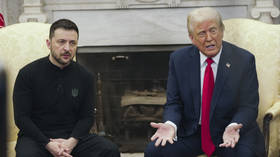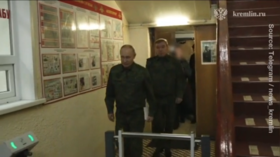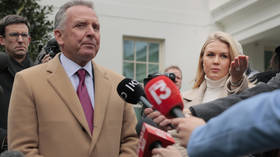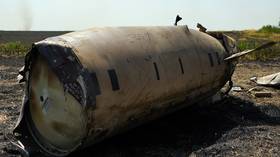US sells weapons, but I can't get a call? Trump baffled about outrage over his Taiwan phone call
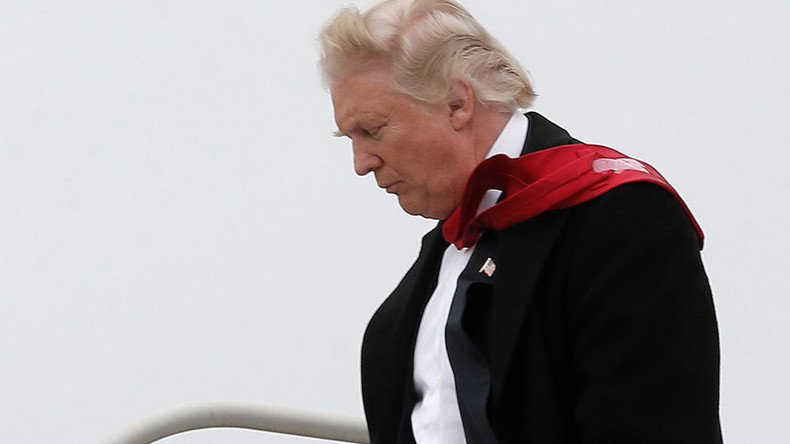
Donald Trump has sparked yet another diplomatic scandal and a Twitter storm, becoming the first American president or president-elect to speak with a Taiwanese leader since 1979. The phone call is feared to increase tensions between the US and China, which considers Taiwan a renegade province.
The President of Taiwan CALLED ME today to wish me congratulations on winning the Presidency. Thank you!
— Donald J. Trump (@realDonaldTrump) December 3, 2016
After Trump tweeted that he talked to Taiwanese President Tsai on the phone, social media, news outlets and observers erupted with opinions on yet another breach of protocol by the president elect.
While the US interacts with Taiwan commercially, even selling it weapons, the State Department says that the US and Taiwan “enjoy a robust unofficial relationship.”
While that kind of language is often used for casual dating, the US does not support or recognize Taiwan’s independence from China, along with most counties of the world.
As a result, White House officials such as Ari Fleischer have often had to carefully dance around the issue by going to such lengths as referring to Taiwan’s president as the “president on Taiwan” as opposed to “of Taiwan.”
Uh-oh. I wasn't even allowed to refer to the gvt "of" Taiwan. (I could say gvt "on" Taiwan.) China will go nuts. https://t.co/vJcBD2rika
— Ari Fleischer (@AriFleischer) December 2, 2016
However, that isn’t to say that the US has always been consistent in its treatment of Taiwan. Just last year, the Obama administration sold $1.83 billion of defensive weapons to Taiwan against China’s objections. In response, US Department of State's Bureau of Political-Military Affairs David McKeeby defended the sale, saying “US arms sales to Taiwan are guided by the Taiwan Relations Act and based on an assessment of Taiwan's defense needs.”
This is true and another aspect of the thorny relationship between the three (or two, depending on who’s counting) countries. In 1979, the US signed the Taiwan Relations Act in an effort to improve relations with China while maintaining relations with Taiwan. The treaty ended US recognition of Taiwan but also made the US responsible for military intervention in the case of an attack or invasion from China.
China angry as US approves $1.83bn arms sale to Taiwanhttps://t.co/ntXYQTewLZpic.twitter.com/Mso0qa34xP
— RT America (@RT_America) December 16, 2015
The treaty also requires the US to "to provide Taiwan with arms of a defensive character,” which has been used to justify the sale of weapons.
Trump used this fact to defend the call when he took to his favorite platform, Twitter, writing: “Interesting how the U.S. sells Taiwan billions of dollars of military equipment but I should not accept a congratulatory call.”
Interesting how the U.S. sells Taiwan billions of dollars of military equipment but I should not accept a congratulatory call.
— Donald J. Trump (@realDonaldTrump) December 3, 2016
However, Matt Pearce of the Los Angeles Times was quick to point out that Trump had pushed for the sale of defensive military equipment to Taiwan back in 2011. He criticized President Barack Obama for delaying the sales, claiming it was the “wrong message to send to China.”
[checks Twitter history to learn Trump's apparently massively important policy stance on Taiwan] pic.twitter.com/tJ7mAVSLOe
— Matt Pearce (@mattdpearce) December 2, 2016
Semantics over whether he should have said “the President of Taiwan” or “the President on Taiwan” aside, whether he received or made the call is under dispute. A report from the Taipei Times claimed that the call was scheduled and “was arranged by his Taiwan-friendly campaign staff after his aides briefed him on issues regarding Taiwan and the situation in the Taiwan Strait.”
The call has also reopened complaints of conflicts of interest between Trump’s administration and the Trump Organization. Last month, Taoyuan Mayor Cheng Wen-tsan confirmed that Trump was looking into expanding his luxury hotel and resort lines to Taiwan.
In September, a representative of the Trump Organization declared the company’s interest in the Taoyuan Aerotropolis, an urban planning development program. However, whether the deal will move forward remains to be seen.



